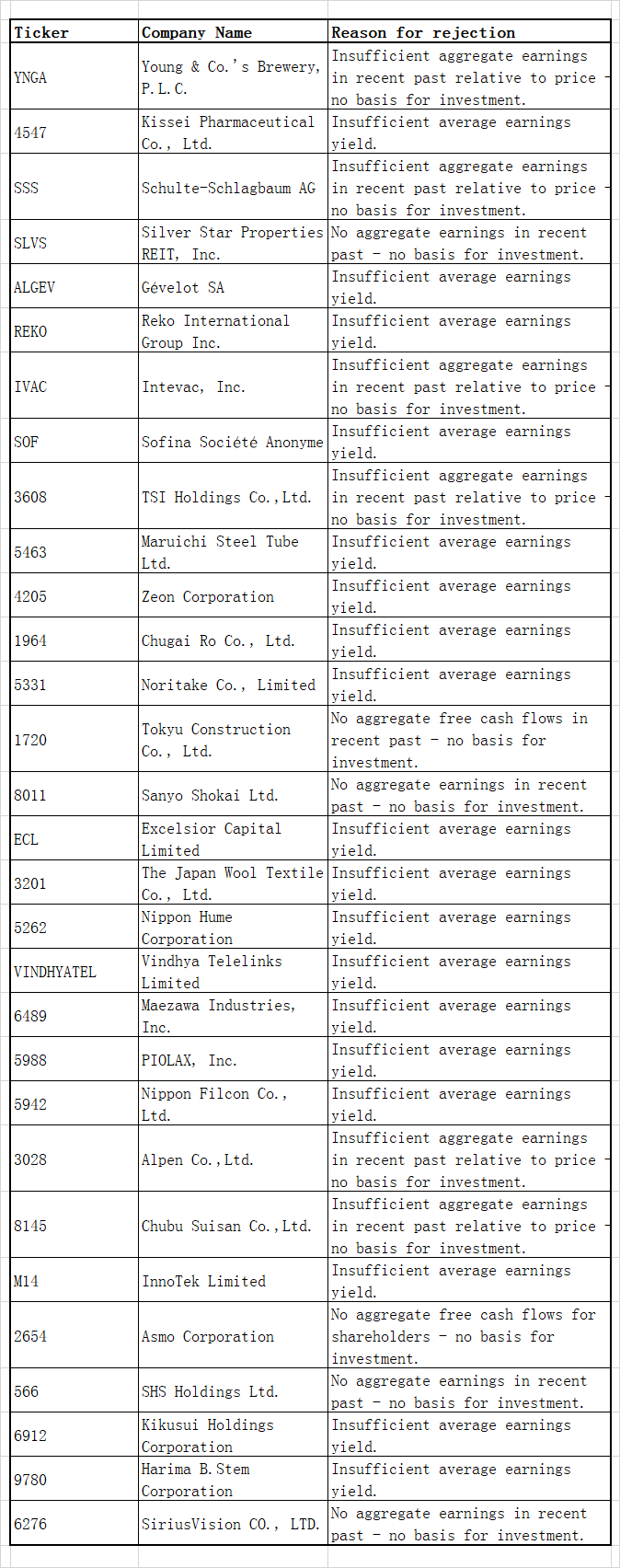Newsletter - November 4th, 2024
- AuditorInvestor

- Nov 4, 2024
- 3 min read
Dear Reader,
Attached is a recent list of stocks that passed value screens (e.g. below net current asset value, below tangible equity, etc.) but don’t meet our investment criteria - and our reasoning.
This may help you avoid some ‘value traps’, and stocks that aren’t sufficiently attractive compared to opportunities available today.
For reports of stocks that pass our quantitative and qualitative standards:
